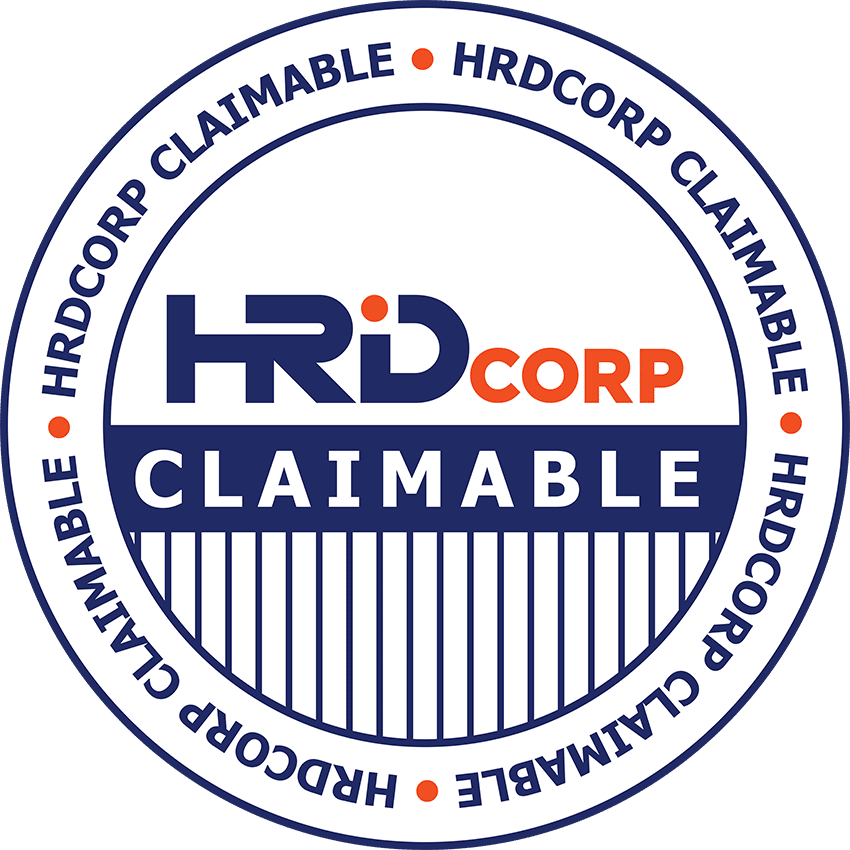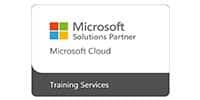Overview
Azure Database for PostgreSQL is a Platform as a Service database service in the Microsoft cloud. It bases itself on the PostgreSQL open-source relational database and includes built-in high availability, automatic backup and restore, as well as comprehensive security features. The pay-as-you-go pricing model provides predictable performance and near-instant scaling.
In this learning path, you learn the main features of PostgreSQL and how they work in Azure Database for PostgreSQL. You learn about the different Azure Database for PostgreSQL implementation options, and how to configure a server for your needs.
Skills Covered
- Explore PostgreSQL architecture
- Understand client-server communication in PostgreSQL
- Understand PostgreSQL query processing
- Secure Azure Database for PostgreSQL
- Procedures and functions in PostgreSQL
- Understand write-ahead logging
- Configure and manage Azure Database for PostgreSQL
- Understand concurrency in PostgreSQL
- Tune queries in Azure Database for PostgreSQL
- Migrate to Azure Database for PostgreSQL flexible server
Who Should Attend
- Database Administrator
Course Curriculum
Prerequisites
- Demonstrate an understanding of relational databases.
- Demonstrate an understanding of basic SQL.
Download Course Syllabus
Course Modules
Learning objectives
After completing this module, you’ll be able to:
- Describe the architecture of PostgreSQL.
- Describe the options for creating an Azure Database for PostgreSQL server.
- Understand PostgreSQL shared memory.
Prerequisites
- Demonstrate an understanding of relational databases.
- Demonstrate an understanding of basic SQL.
PostgreSQL is a client-server system, which allows many clients to connect to a central server. In this module, you learn how PostgreSQL manages connections from clients, and look at some common PostgreSQL client tools.
Learning objectives
After completing this module, you’ll be able to:
- Understand connection handling.
- Understand the PostgreSQL client tools.
Prerequisites
- Demonstrate an understanding of relational databases.
- Demonstrate an understanding of basic SQL.
The Azure Database for PostgreSQL server receives SQL queries and returns the relevant results. Each SQL query goes through several stages in order to return the correct results as quickly as possible.
Learning objectives
After completing this module, you’ll be able to:
- Identify the query processing components.
- Understand EXPLAIN.
Prerequisites
- Demonstrate an understanding of relational databases.
- Demonstrate an understanding of basic SQL.
Azure Database for PostgreSQL includes comprehensive security features including encryption, authentication, and granting permissions to database users. In this module, you learn about the security features of Azure Database for PostgreSQL.
Learning objectives
After completing this module, you’ll be able to:
- Describe the security features of Azure Database for PostgreSQL.
- Create database users and grant permissions.
- Understand encryption in Azure Database for PostgreSQL.
Prerequisites
- Demonstrate an understanding of relational databases.
- Demonstrate an understanding of basic SQL.
PostgreSQL supports stored procedures and functions to make SQL queries reusable. In this module, you learn how to create and run stored procedures and functions.
Learning objectives
After completing this module, you’ll be able to:
- Create a stored procedure in Azure Database for PostgreSQL.
- Call a stored procedure in Azure Database for PostgreSQL.
- Create and use a function in Azure Database for PostrgreSQL.
Prerequisites
- Demonstrate an understanding of relational databases.
- Demonstrate an understanding of basic SQL.
Azure Database for PostgreSQL is an ACID compliant database service. Write-ahead logging ensures changes are both atomic and durable. In this module, you learn how Azure Database for PostgreSQL implements write-ahead logging.
Learning objectives
After completing this module, you’ll be able to:
- Describe write-ahead logging.
- Describe replication and logical decoding.
Prerequisites
- Demonstrate an understanding of relational databases.
- Demonstrate an understanding of basic SQL.
Azure Database for PostgreSQL employs system catalogs and views to manage metadata efficiently. Understanding these can significantly enhance database performance and streamline the administration of PostgreSQL systems.
Learning objectives
After completing this module, you’ll be able to:
- Describe system catalogs and system views in Azure Database for PostgreSQL.
- Investigate metadata in Azure Database for PostgreSQL.
- Explain the purpose of the vacuum process.
- Configure vacuum server parameters.
Prerequisites
- Demonstrate an understanding of relational databases.
- Demonstrate an understanding of basic SQL
Azure Database for PostgreSQL is a multi-user relational database solution. The increase in users brings a risk of conflicts and so it is important to understand the concurrency systems that are in place.
Learning objectives
After completing this module, you’ll be able to:
- Describe Multi-Version Content Control and snapshots in Azure Database for PostgreSQL.
- Describe isolation levels in Azure Database for PostgreSQL.
- Describe locking in Azure Database for PostgreSQL.
Prerequisites
- Demonstrate an understanding of relational databases.
- Demonstrate an understanding of basic SQL.
Database management systems (DBMSs) need systems to understand the data and the queries that are running against this data. It’s important to understand how performance tuning works and how you can assess performance metrics.
Learning objectives
After completing this module, you’ll be able to:
- Describe statistics in Azure Database for PostgreSQL.
- Assess query performance with the Query Store.
Prerequisites
- Demonstrate an understanding of relational databases.
- Demonstrate an understanding of basic SQL.
Azure Database for PostgreSQL Flexible Server supports data migration from PostgreSQL servers. This module covers online and offline migration tools and methods, helping you choose the right approach for your scenario.
Learning objectives
After completing this module, you’ll be able to:
- Understand the different online and offline migration options.
- Identify the different migration tools available.
- Select the appropriate migration tool for your specific scenario.
Prerequisites
- Demonstrate an understanding of relational databases.
- Demonstrate an understanding of basic SQL.
Request More Information
Training Options
- VILT: Virtual Instructor-Led Training
- ILT: Instructor-Led Training
RM1,200.00Enroll Now
RM1,200.00Enroll Now
Exam & Certification
This course is not associated with any Certification.
Training & Certification Guide
Addressing the AI Skills Gap in Malaysia
The Artificial Intelligence (AI) surge across global industries has created immense potential for innovation and economic growth. For Malaysia, AI is pivotal in its ambition to become a digital-first economy. However, despite this goal, the country faces a significant AI skills gap—a shortfall in the number of skilled professionals equipped to meet the rising demands for AI expertise across various industries. This blog examines the causes, impact, and initiatives underway to bridge this gap, ensuring Malaysia remains competitive in the digital age.
AI Mastery Program: Learn AI with Microsoft in 2024
Artificial Intelligence (AI) has been one of the hottest topics in the tech industry for the past decade. With its rapid advancements and potential to impact our daily lives, learning AI has become a highly sought-after skill.
We are thrilled to announce the launch of our Microsoft AI Mastery Program in 2024, made possible through our partnership with Microsoft, a renowned leader in AI technology. This program is tailored for individuals and tech professionals passionate about acquiring and mastering the fundamental and advanced principles of AI.
Top AI Skills Malaysia Needs Today: Advance Your IT Career in 2024
In the quest for AI-driven innovation, Malaysia seeks sharp minds with the right IT skills. Data science, machine learning—these are the tools in high demand. This article examines the AI skills Malaysia needs, the industries driving this change, and how to develop these skills to enhance your career trajectory.
In-demand Cloud Technology Skills – Insights from Malaysia’s Job Market
As Malaysia accelerates its digital transformation journey, cloud technology has emerged as a critical component of the nation’s economic growth. The adoption of cloud services is driving innovation across various sectors, from finance to manufacturing, and creating a robust demand for skilled cloud professionals.
This article dives into the most in-demand cloud technology skills in Malaysia, backed by market data and insights from industry reports, and highlights the key roles that are shaping the future of cloud technology.
Master Your Cloud Career: Essential Azure Certifications for 2024
Targeting the most valuable Azure certifications for 2024? In the evolving landscape of cloud computing, Azure certifications stand out by offering professionals the leverage to thrive. This article presents a focused rundown of crucial Azure certifications, shining a light on their career-boosting effects and elucidating steps to get certified. No fluff – just actionable insights to empower your journey in the cloud.
The Future of Cloud Careers in Malaysia 2024
As Malaysia advances its digital economy, the demand for cloud professionals is growing rapidly. Cloud technology has become an essential part of the modern IT landscape, and businesses across various sectors are increasingly relying on cloud infrastructure to drive digital transformation.
This article explores the current state of cloud careers in Malaysia, key roles and career pathways, and emerging cloud trends that are shaping the future of cloud technology.
Top Microsoft Applied Skills Courses to Boost Your Career
Microsoft Applied Skills are scenario-based practical credentials that confirm your ability to tackle real-world challenges using Microsoft technologies.
In this article, we will dive into what these skills are, how they differ from traditional certifications, and the benefits they bring to your career. Expect insights on top courses, the assessment process, and tips for success.
Maximize Your Productivity with Microsoft Copilot: A Complete Guide
Microsoft Copilot is an AI assistant within Microsoft 365 apps like Word, Excel, and Teams. It automates tasks and offers smart insights to boost productivity. This guide shows what Microsoft Copilot is, how it works, and ways it can simplify your tasks.







